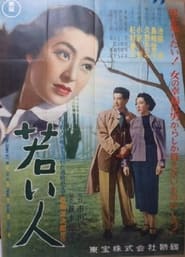detail profile yoshie minami
Peran Yang Di Mainkan Yoshie Minami
 Kazuo encounters a religious group travelling...
Kazuo encounters a religious group travelling...Many Happy Returns 1993
Kazuo encounters a religious group travelling around Japan performing "miracles". He discovers they are fakes, but is intrigued by the showmanship of the group, and becomes involved with them. The group is split into two, some members concentrating on spiritual teachings, and the others using the facade of religion to make money. The business faction dismiss the old spiritual master and choose Kazuo to lead their group.
 After the fall of the Tokugawa...
After the fall of the Tokugawa...Goryokaku 1988
After the fall of the Tokugawa Shogunate, there was a series of battles fought while the former supporters of the Tokugawa shogunate retreated to the north where they actually started a sovereign nation that was recognized by more than one European country. Survivors of the Shinsengumi were among the followers of Enomoto Takeaki who took them to the northernmost island of Ezo where they fought their final battle at the star shaped fort, Goryokaku. The Japanese Civil Wars fought in the name of the emperor signaled the complete end of the feudal system and Japan’s entry into the modern world as those brave samurai tried to halt progress and learned that the age of modern warfare and weaponry had passed them by. Swords were no match for rifles and cannons, nor was any man a match for the power of the imperial flag. Japanese loyalty to the emperor has long defined the nation and culture despite the changing times.
 A young girl is striving for...
A young girl is striving for...The Tragedy of “W” 1984
A young girl is striving for stardom. In order to get a lead role in a new production, she agrees to stand-in for a famous star whose rich patron died in her arms one night. The real-life drama gradually comes to mirror the story of the play being performed by her.
 The brief love story of an...
The brief love story of an...The Rendezvous 1972
The brief love story of an attentive young man and a beautiful woman who meet, fall in love and part during the course of a train ride.
 As a young woman Oriko condemned...
As a young woman Oriko condemned...The Affair 1967
As a young woman, Oriko condemned her widowed mother for openly pursuing relationships with younger men. After her mother passes away, she finds herself in an unhappy, loveless marriage and begins to understand her mother’s actions.
 A businessman with a disfigured face...
A businessman with a disfigured face...The Face of Another 1966
A businessman with a disfigured face obtains a lifelike mask from his doctor, but the mask starts altering his personality.
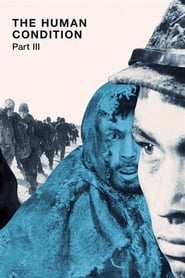 After the Japanese defeat to the...
After the Japanese defeat to the...The Human Condition III: A Soldier's Prayer 1961
After the Japanese defeat to the Russians, Kaji leads the last remaining men through Manchuria. Intent on returning to his dear wife and his old life, Kaji faces great odds in a variety of different harrowing circumstances as he and his fellow men sneak behind enemy lines.
 A lighthearted take on director Yasujiro...
A lighthearted take on director Yasujiro...Good Morning 1959
A lighthearted take on director Yasujiro Ozu’s perennial theme of the challenges of intergenerational relationships, Good Morning tells the story of two young boys who stop speaking in protest after their parents refuse to buy a television set. Ozu weaves a wealth of subtle gags through a family portrait as rich as those of his dramatic films, mocking the foibles of the adult world through the eyes of his child protagonists. Shot in stunning color and set in a suburb of Tokyo where housewives gossip about the neighbors’ new washing machine and unemployed husbands look for work as door-to-door salesmen, this charming comedy refashions Ozu’s own silent classic I Was Born, But . . . to gently satirize consumerism in postwar Japan.
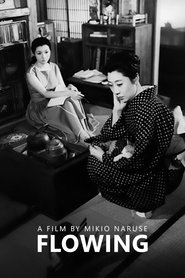 Otsuta is running the geisha house...
Otsuta is running the geisha house...Flowing 1956
Otsuta is running the geisha house Tsuta in Tokyo. Her business is heavily in debt. Her daughter Katsuyo doesn't see any future in her mother's trade in the late days of Geisha. But Otsuta will not give up. This film portraits the day time life of geisha when not entertaining customers.
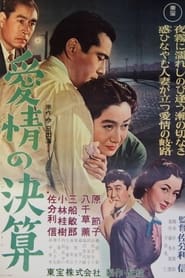 Living in a house that has...
Living in a house that has...Settlement of Love 1956
Living in a house that has lost its man to the war a year earlier are the widow and her child. Four of the dead man's friends gather to have an anniversary wake. Some time following the ceremony one of the attendees marries the widow. Soon another friend of the deceased and his family also make the house their home when they move to town. Everyone's life is changed quite a bit. When the newer husband sustains an injury to his leg and loses his job it leads to the wife having to work. By the time the fifth anniversary of the friend's death occurs and another reunion is held another friend is in love with the former widow.
 Japan 1159 Morit a brave samurai performs...
Japan 1159 Morit a brave samurai performs...Gate of Hell 1953
Japan, 1159. Moritō, a brave samurai, performs a heroic act by rescuing the lovely Kesa during a violent uprising. Moritō falls in love with her, but becomes distraught when he finds out that she is married.
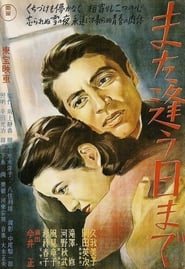 Saburo and Keiko fall in love...
Saburo and Keiko fall in love...Till We Meet Again 1950
Saburo and Keiko fall in love with each other but the tide of war separates them.

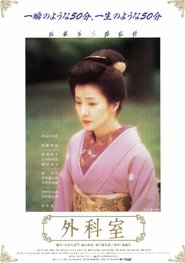 Melodrama about a woman refusing surgery
Melodrama about a woman refusing surgery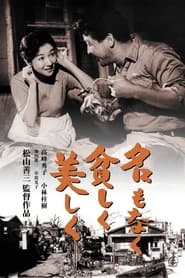 The story is of two people...
The story is of two people... A woman and her daughter are...
A woman and her daughter are... A Japanese woman writes down three...
A Japanese woman writes down three...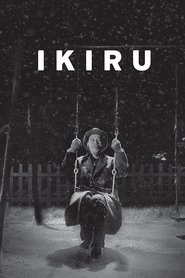 Kanji Watanabe is a middleaged man...
Kanji Watanabe is a middleaged man...